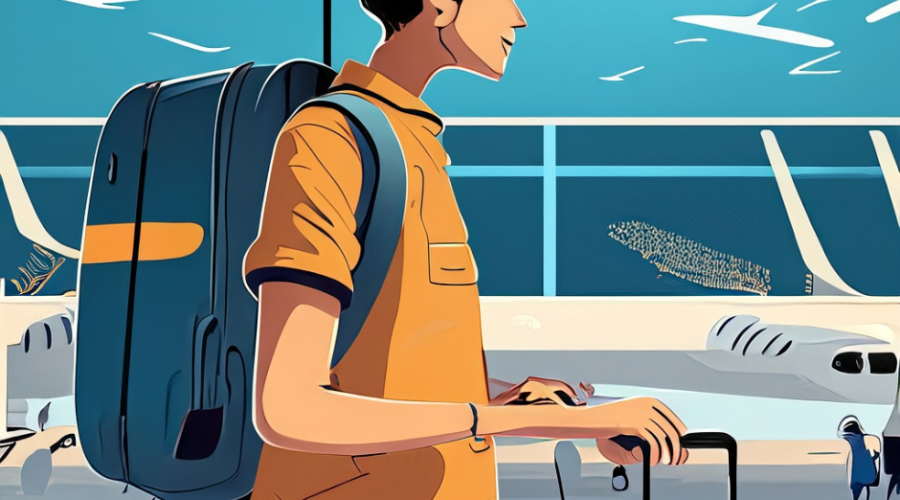Flight Canceled or Delayed: Know Your Air Passenger Rights
Traveling by air can be both exciting and stressful, and one thing you should always be aware of as a passenger is your rights. These rights can vary significantly depending on where you’re flying from or to. In this blog post, we’ll explore air passenger rights in Brazil, Europe, and the United States to help you better understand what to expect in different situations.
Brazilian Air Passenger Rights
In Brazil, the National Civil Aviation Agency (ANAC) is the regulatory authority that oversees all matters related to flights. When it comes to air passenger rights, the key legislation you should be familiar with is ANAC Resolution No. 400.
ANAC Resolution No. 400 clearly outlines the responsibilities of airlines when flight-related issues occur. It also covers various passenger rights, specifying the types of assistance that airlines are obligated to provide in each situation.
When Does Consumer Protection Apply in Brazil?
- Domestic flights within Brazil
- International flights departing from a Brazilian airport
- International flights arriving at a Brazilian airport
- Connecting flights at a Brazilian airport
- Any airline ticket issued in Brazil (even if the flight is operated abroad)
Your Rights in Brazil
- Information: In the event of a flight delay at the airport, the airline must promptly inform you of the cause of the delay and the new estimated departure time. They should also provide updates every 30 minutes.
- Right to Assistance: Whenever flights are delayed or canceled, the airline must provide material assistance to passengers. The type of assistance depends on the length of the delay after your original departure time:
- From 1 hour: communication (internet, phone)
- From 2 hours: food (voucher, meal, snack)
- From 4 hours: accommodation in case of an overnight stay at the airport and round-trip transportation. If you are in your hometown, the airline may only offer transportation to your residence and back to the airport.
- Right to Refund or Re-accommodation: According to ANAC rules for flight cancellations or delays exceeding 4 hours, airlines must offer the following options to passengers:
- Full ticket refund, including the airport tax OR
- Re-accommodation on another flight operated by the same airline OR
- Re-accommodation on a flight operated by another airline if there is no availability with the airline you purchased the ticket from OR
- Rescheduling the flight for a new date and time at no cost
- Rights in Overbooking Situations: If your flight is overbooked, the airline will ask passengers to volunteer to give up their seats. Volunteering passengers may receive compensation, but the amount can be negotiated individually between the passenger and the airline. If no one volunteers, the airline can deny boarding to some passengers.
- Domestic flights: R$1,300
- International flights: R$2,600
European Air Passenger Rights
In the European Union (EU) and associated territories like the UK, Iceland, Norway, and Switzerland, air passenger rights are governed by Regulation (EC) No. 261. This comprehensive legislation, adopted in 2004, applies to all passengers departing from or arriving at airports within these areas.
Key Rights in Europe
Right to Information: Airlines must provide information to passengers at check-in counters in all airports where they operate.
Right to Assistance: Passengers have the right to free material assistance from the airline in the event of flight disruptions. While awaiting a solution, the airline should provide:
- Drinks and meals
- Two communications (phone, fax, or email)
- Accommodation if the alternative flight is not on the same day
- Transportation to and from the airport and the accommodation location
If the airline does not offer this assistance, keep all receipts for additional expenses, as you may be eligible for reimbursement.
Compensation:
Compensation for delayed flights: Any delay exceeding three hours entitles passengers to compensation. The amount depends on the delay time and flight distance.
- Less than 3 hours: No compensation
- 3 to 4 hours: €250 to €400 depending on the flight distance
- Over 4 hours: €250 to €600 depending on the flight distance
- Never reached the destination: €250 to €600 depending on the flight distance
Compensation for canceled flights: If the airline notifies you of a flight cancellation less than 14 days before the scheduled departure, you may be entitled to compensation based on the distance and waiting time.
The statute of limitations for claiming compensation varies from 1 to 10 years, depending on the European country, so be sure to check your specific case.
U.S. Air Passenger Rights
Air travelers have certain rights in the United States, but they differ from those in Brazil and Europe. While U.S. airlines are required to compensate passengers for overbooking situations, there are no mandatory regulations for passengers affected by long delays or cancellations.
Overbooking Compensation in the U.S.: If you’re denied boarding due to overbooking in the U.S., you could be entitled to up to $1,350 in compensation.
Baggage Issues in U.S. Domestic Flights: Passengers on U.S. domestic flights have clear rights when it comes to damaged, delayed, or lost baggage. You can learn more about your rights regarding delayed baggage on our website.
Tips for Dealing with Air Travel Issues Worldwide
No matter where you’re flying, here are some valuable tips for dealing with air travel disruptions:
- Don’t wait for the airline to come to you; seek assistance proactively.
- Take immediate action to resolve the issue and then seek reimbursement.
- Avoid checking baggage whenever possible, as canceled flights usually hold your checked luggage until a new flight is allocated to you.
- File a complaint immediately, preferably in writing, and attach all documentation. Take photos of airport boards and keep any evidence that can help support your case. Record conversations with airline staff if necessary.
- Consider purchasing travel insurance, especially when traveling to non-EU countries, as almost all of them offer reimbursement or composition in case of delayed and canceled flights.
- Review the coverage and conditions of your credit card’s travel insurance.
Remember, being aware of your air passenger rights can make your travel experience smoother and help you get compensation when things go wrong. Safe travels!


